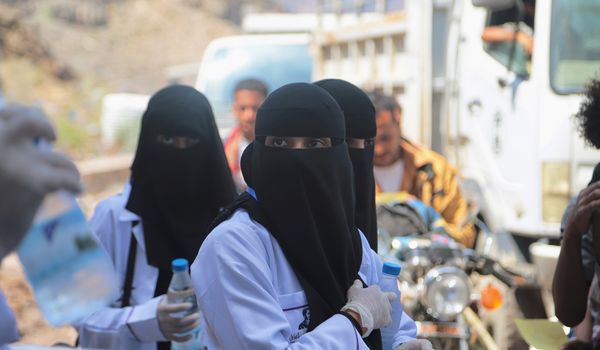Peace is the prerequisite to health, equality and human security. But conflict and war continue unabated even as the world is in the midst of the COVID-19 pandemic. And the pandemic is hitting the poorest and most marginalized hardest. In Yemen, the six-year war has left 7 million people acutely malnourished, millions displaced and a health infrastructure in shambles. On 21 September 2014, the post-Arab spring transitional process in Yemen failed (2011-2014) leading the country to a devastating war, which worsened with the intervention of the Arab coalition. The conflict in Yemen started when Houthi militias invaded the Yemeni capital and took control of state institutions and forced the Yemeni president to flee. After that, the Arab coalition led by Saudi Arabia and the United Arab Emirates (UAE) intervened in March 2015. Yemen then entered into multiple conflicts, the latest of which was the coup attempt by the transitional council with the support of the UAE in the south of Yemen claiming the secession from northern Yemen, which was unified in 1990. The conflict has become a regional conflict between Saudi Arabia and the Emirates on the one hand and Iran on the other. Nonstate actors gained power due to the abscess of the state and the destructor of services, especially the health service. Yemen was already experiencing the world’s worst humanitarian crisis and, with COVID-19, this crisis is deepening. Yemeni women now face the double burden of the war and a pandemic.
The War and Yemeni Women
Due to the ongoing war, Yemeni women face the loss of loved ones, injury, striking poverty, gender-based violence, displacement, arbitrary arrests and financial pressures on an everyday basis. Women have been illegally detained, falsely charged with prostitution and sentenced after grossly unfair trials. Once imprisoned, women are subjected to torture, poor prison conditions and the social stigma associated with their charges and imprisonment.

